As with her older siblings, when Lisa DeMarco was a little girl her parents enrolled her in an art class with local Windsor, Ontario pen and ink artist Robert Rudkin. Having instructed her brothers and sisters over a number of years, the artist was compelled to ask Lisa a simple question one day. “Are you sure you’re actually related to the others?” Apparently, she was that bad. I begin with that observation because it may be the only thing Lisa DeMarco has never excelled at. Over four decades later, she is ranked as one of the world’s leading climate change lawyers, has attended at least twenty of the UN Climate Change Conference of the Parties, and runs marathons to relax, competing annually in the 276 kilometre, 17 stage Cabot Trail Relay Race.
I first met Lisa in 2008 when I was still working for the gas company and had begun a newly created role to help sort out strategy and potential technology developments regarding the issue of carbon emissions and climate change. The vice-president I reported up to decided that perhaps, just perhaps, these carbon issues presented something of an existential threat to the company since, you know, our business was the storage, transportation and delivery of a fossil fuel. When I’d started at Union Gas in 1987, we were the energy good guys: clean, abundant natural gas, far better than oil, far less expensive than electricity. Twenty years later and times had changed, although in my experience few of the senior management acknowledged the threat or truly believed the science — all politics to them. Anyway, to begin my education and learn from people who knew what they were talking about, I signed up for a two day conference headed by Lisa, who was already recognized as one of Canada’s foremost environmental lawyers, and David McLaughlin, then the President and CEO of the National Roundtable on the Environment and the Economy. What I remember of Lisa from all that time ago was someone warm, engaging, well connected, and confident in the way people who truly know their stuff are — they don’t need to strut it to prove it. Perhaps it’s a personality you develop as the youngest of nine children.
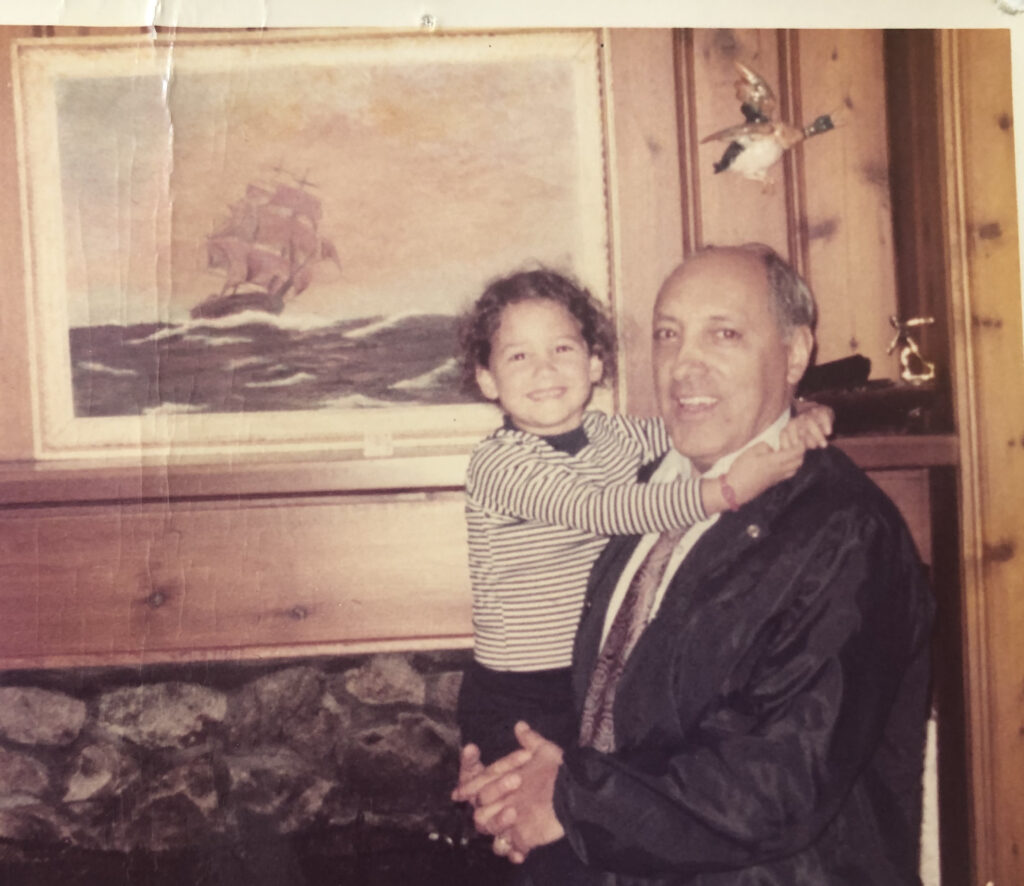
Yes, you read that correctly, the youngest of nine children. Lisa was born in Windsor in 1967 with her birth coming exactly seven years after child number eight, Catherine. So life progressed from having a houseful of older siblings to watch over her until Catherine went off to school and Lisa, at around ten years old, became an only child, so to speak. By then, however, the structure of Lisa’s childhood was already in place, perhaps the biggest contributor to her self-described “OCD”. As she explains, “my mom’s approach to having nine kids — and keeping them out of jail — was to have everyone extremely active. Sports. Arts. Ballet. Music.” While so much scheduled activity may offer a programmed childhood, it can also lead to one that Lisa claims “is pretty charmed and a way of raising children to be replicated if you can do it without actually having nine children.”
Then again, if you’re not surrounded by all those siblings you miss out on a couple of influences that certainly shaped Lisa. One is developing a sense of drive and fearlessness by keeping up with the big kids — she was on water skies at two years old.
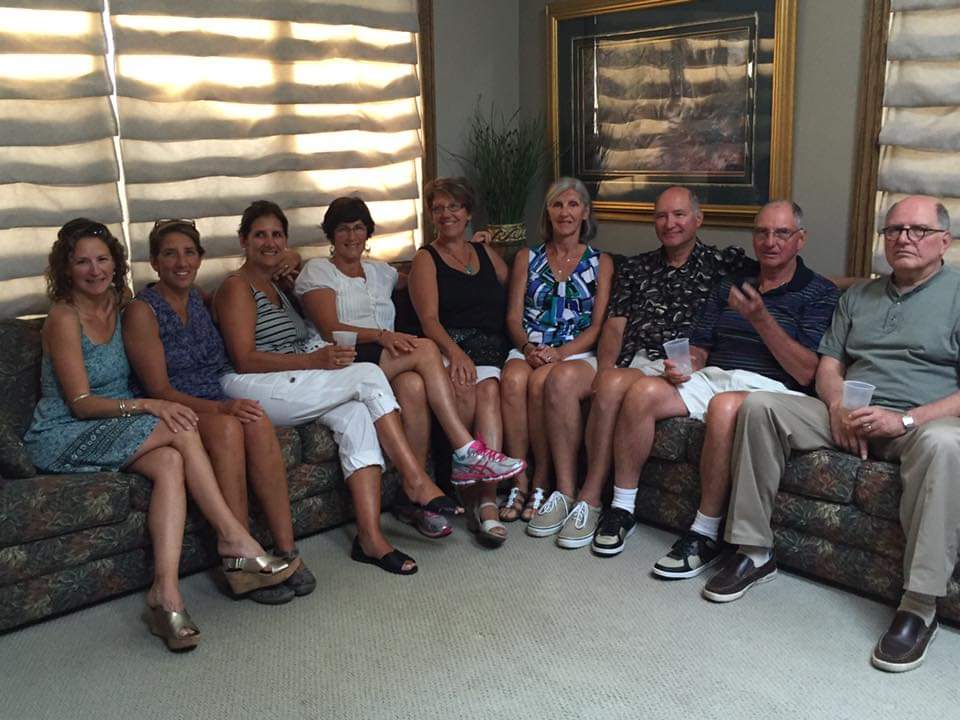
Added to all that nurture, we also need to recognize nature — Lisa was born with the high intelligence that allows a person to achieve the math marks required for a full scholarship to university. Though her scholarship to the University of Western Ontario came on the basis of those math marks, she majored in science, planning on a career in medicine or marine biology. But not without a hiccup. The love of physical activity, since that time of water skiing at two years old, led her to become coxswain for the rowing team, and as she lost herself in rowing she lost the first year scholarship (discovering the pub to celebrate post-race may have offered a contributing factor). Her parents stepped in to help her financially, which speaks to both their financial resources and choices of how to allocate those resources. Her father was a doctor (her mother trained as a nurse but became a stay-at-home mom) so income was present but, with nine children, so were the expenses. As Lisa says, “my parents did not live large, ate at home, clipped grocery coupons, and forewent the country club lifestyle of many neighbours in order to ensure all nine of us would have university, and graduate/professional school, which we all pursued, paid for.”
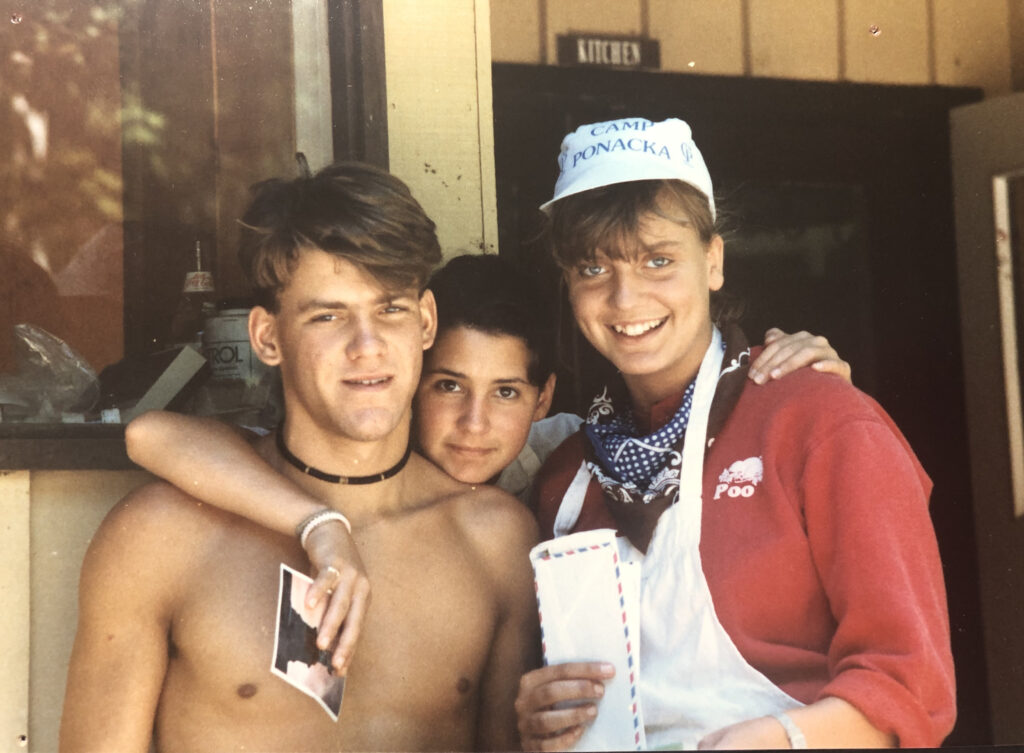
Upon graduating with an Honours Bachelor of Science in Human and Environmental Biology, she went to the University of Toronto to do her masters in environmental toxicology. Two patterns emerged. One is that Lisa has connected herself to highly motivated and successful people in their field — people who no doubt eagerly mentored Lisa, recognizing her as a high performing individual. At U of T, that person was Dr. Ken Lee, a prominent expert in the field of oil spill response technologies who, as well as teach, has contributed to his field as the founding Executive Director of the Centre for Offshore Oil, Gas and Energy Research in Canada and, later, the Director of Oceans and Atmosphere, Commonwealth Scientific and Industrial Research Organization in Australia. Lisa can’t speak enough of him and his influence.
Her post-graduate research focused on understanding hydrocarbon pollution effects on sea bacteria and the accumulations of contaminants as they progressed up the food chain to fatty mammals such as the beluga whale. During this research the second pattern in Lisa’s adult life emerged, her personal ethics. She became embroiled in an ugly experience where a grant funder suggested that she “alter” her research findings. Her first response? “Fuck that!” Her second response? “I decided to write the LSAT (Law School Admission Test).” A couple of weeks after the incident she walked into the examination room, sat down, wrote the LSAT and achieved among the highest mark of all applicants. Lisa downplays the accomplishment by saying “being mathy” helps to score high. From there she took her science expertise and focused on environmental law.
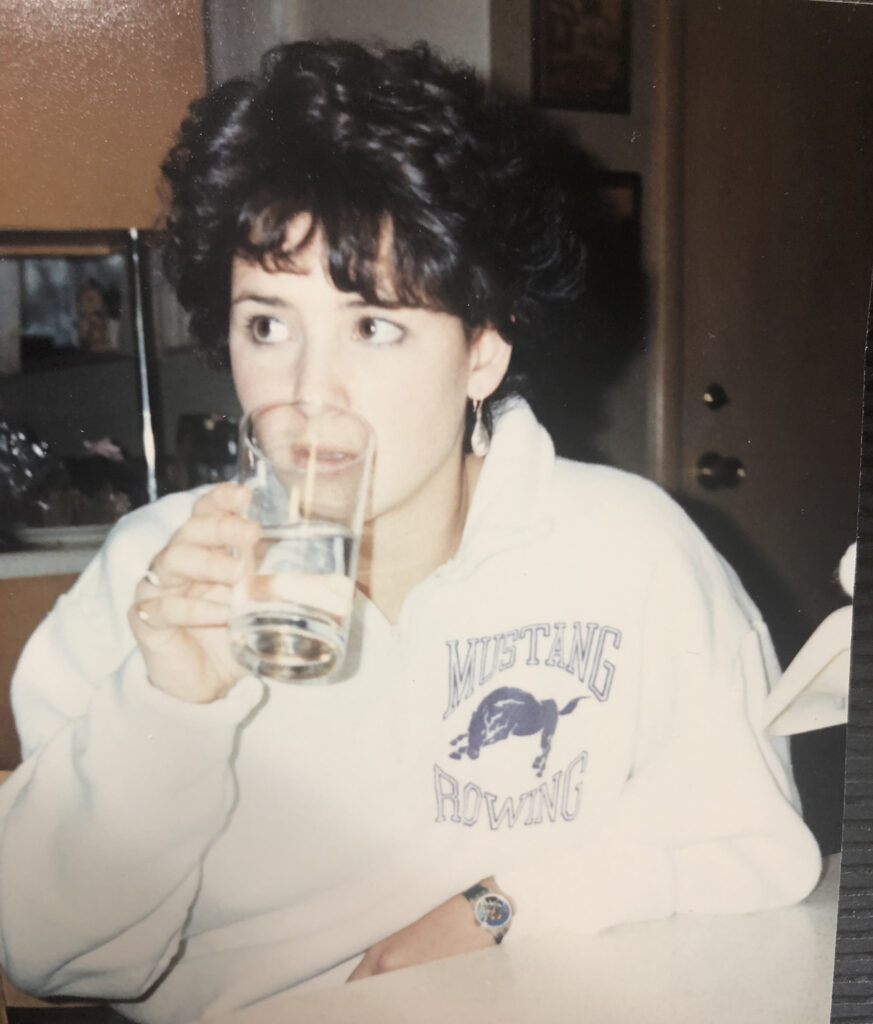
Her LSAT marks not only got her into Toronto’s Osgoode Law School but a number of international law schools came calling about a postgrad degree. After doing some homework, Lisa discovered that Vermont Law School consistently ranked number one for environmental law and in 1995 she graduated summa cum laude with a Masters of Studies in International Environmental Law. Her focus on climate change, something she calls a “happy accident of timing”, relates again to that pattern of connecting with the best and brightest. During her time at Vermont Law School one of the guest lecturers was United States Senator Tim Wirth. It is generally regarded that NASA scientist James Hansen, during a US congressional hearing in 1988, provided the first warning to mass audiences about global warming caused by human activity. Senator Wirth helped organize those hearings and went on to be one of the authors of “Project 88” which outlined the “Cap and Trade” idea. Lisa entered the legal profession with her understanding that, along with regulations, green capitalism offered the best strategies to alter the trajectory of anthropogenic climate change. To Lisa this means using “market mechanisms to achieve an environmental goal and support the development of sustainable infrastructure (renewable power, smart grids, clean technology) using the power of market forces.”
Prior to this, she met her future husband, Peter Ballyk, in 1991 during first year of grad school at University of Toronto. They eventually had two children, Alexandra (Alex) and Ben. On the surface, their relationship seemed to be foretold: identical family circumstances. Peter was the youngest of nine children, with three brothers and five sisters; each had dads who were doctors, and moms who were nurses. They were both involved in the Argonaut Rowing club and competed at the famous Head of the Charles Regatta in Boston. Yet, for all that, they came to realize they had “very different approaches to life and communication styles” and separated in 2009.
Lisa articled at the Attorney General, Province of Ontario, and was seconded to legal services at the Ministry of Environment and Energy. She told me that “former Assistant Deputy Attorney General Jack Johnson was the director. He was just outstanding at empowering his lawyers and giving them great exposure to a wide variety of matters. At almost 90 years of age he remains a mentor.” The pattern of connecting with the best and brightest continued.
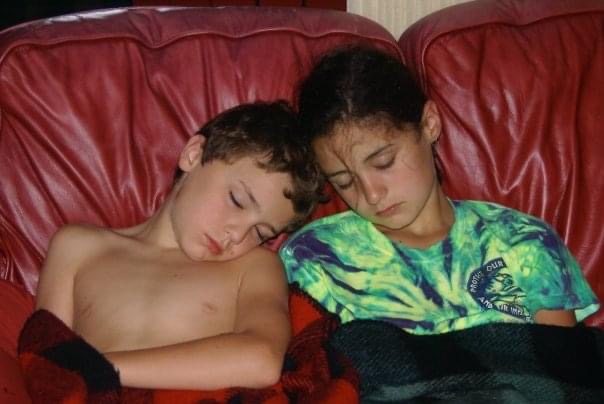
Regarding her personal evolution to approaching environmental law, including the efforts to de-carbonize society, she said that she came to an understanding that working within, rather than prosecuting, would lead to greater change. One case in particular, while at the Ministry, crystallized that thinking. Although she can’t share the legally privileged details, Lisa decided that “while prosecution is necessary, greater change comes from creating culture change within organizations, like corporations, that is lasting.” Moving into the private sector she wanted to focus on energy, since at the heart of carbon emissions and climate change is the production, distribution and consumption of energy.
“After three and a half years with the government I was recruited into Bennett Jones and on my second day at the firm the energy group told me that they were leaving the firm due to a client conflict.” After her first expression of “What?”, her second expression quickly followed: “We aren’t going anywhere just yet.” She sought her own legal counsel and after a few weeks decided to follow one of the partners, and mentor, George Vegh to Dononhue Ernst and Young. She continued to work closely with Vegh, who is acknowledged as a leader in energy markets having served as General Counsel of the Ontario Energy Board, Chair of the Ontario Energy Association, and being heavily involved in energy market reforms. Lisa says they stayed with the firm “for a few years until legal conflicts became an issue and George and I went to Macleod Dixon. I became the first female partner at the Toronto office and worked there for over a decade. I stayed through mergers with Norton Rose Ogilvy and then Fulbright Jaworsky, which became Norton Rose Fulbright.”
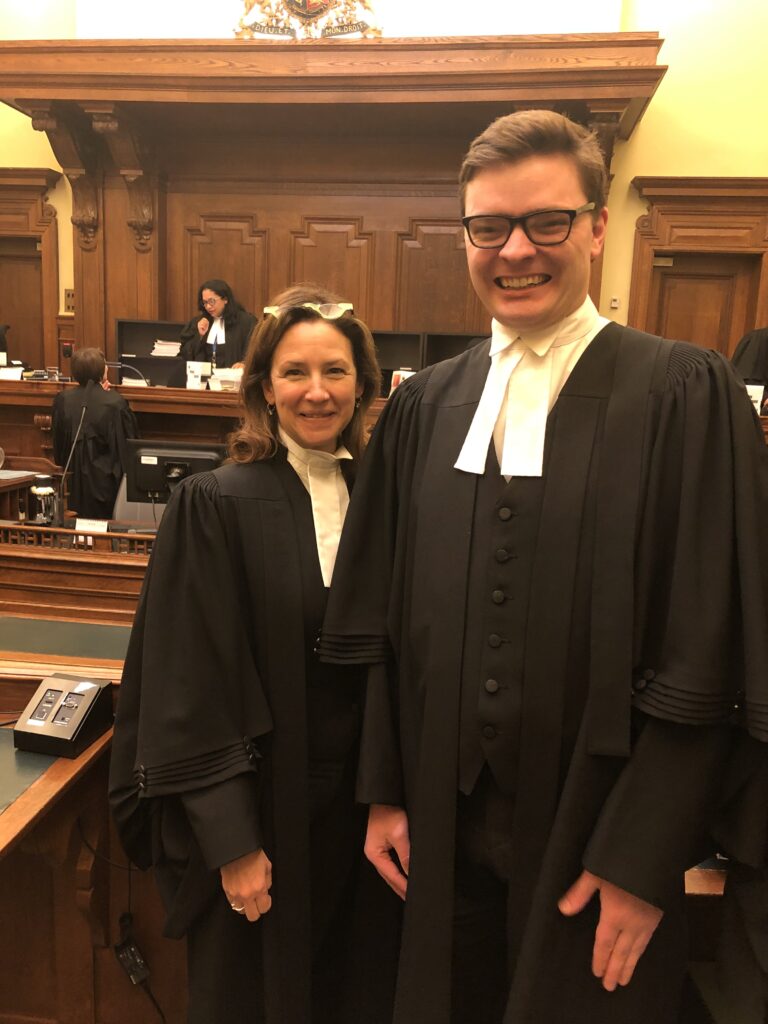
I won’t take readers through all the variations of law firm mergers and name changes because after talking to Lisa I did some background research to follow it all and, honestly, it made my head spin. There’s probably a way to re-tell an old joke about changing underwear and relating it to law firms changing names, but I’ll leave that alone and say that in 2016 Lisa decided to strike out on her own. “I never saw myself as an entrepreneur,” she says, “but client conflicts would arise, the last coming about with the Energy East file, so I joined a very small boutique firm and months later we created DeMarco Allan. However, there is a trend away from traditional law firm names, particularly for companies operating in the global market. So last year we decided to re-brand as Resilient LLP, which connects us to sustainability law — Environmental, Social and Corporate Governance — in a positive manner, reflecting our three areas of focus: Climate Change, Clean Energy, Indigenous Law.” (For reader clarification, Energy East refers to a proposal to transport Alberta bitumen oil through re-purposed natural gas pipelines to refineries and ports in Quebec and New Brunswick.)
Those years working in law saw Lisa hone that belief in reforming energy markets and she developed an expertise to drive change. When the Ontario Liberal government decided to get serious about climate change by pricing carbon they joined the Cap and Trade market established by the state of California and the province of Quebec, and Lisa was a major player in working through the details. Still with the gas company at the time, I remember having a discussion with her about the merits of cap and trade versus carbon tax, and she counselled me to not think in terms of either/or. Her position was succinctly captured during her appearance on TVO’s nightly political talk show “The Agenda with Steve Paikin” in 2015.
“I’m certainly in favour of carbon pricing, and I’d like to task the media with maybe not seeing as much of a distinction between a tax or a cap and trade system, and worrying more about the details of how the program is created and implemented….I would say that the devil is in the detail and design does matter….Let’s look at what target we want to achieve first of all. Secondly, what is the most efficient — and certainly we want an efficient and effective system. And then finally, what are the costs of inaction if we don’t implement something? Those are the three parameters we really want to drive home in designing a smart carbon system and what we also want to do is realize that in any action it’s never perfect in initial design. So design it to be reevaluated on an interim basis.”
I’ll leave Lisa’s words to speak for her in all those matters. But, of course, as committed to work as she is, her vocation isn’t everything. Although her marriage came apart in 2009, she focused on raising her two children, and continued to thrive by engaging physical activity that has been her life’s blood. A long time half-marathon runner, she began running full marathons after separating from her husband. I queried her on that fact given I always assumed most runners went the opposite way — as they aged they moved from full marathons to half marathons. To which Lisa responded, referring to the end of her marriage, “It was either Prozac, alcohol, or running further. I chose to run further.” That running increased her commitment to the “divorce legs” of an annual relay race held in Nova Scotia since the late 80s. According to their website, The Cabot Trail Relay Race has evolved from an event with six teams of seventeen runners into “one of the largest and most popular running events in eastern Canada. Now 70 teams from across Canada and the US compete.”
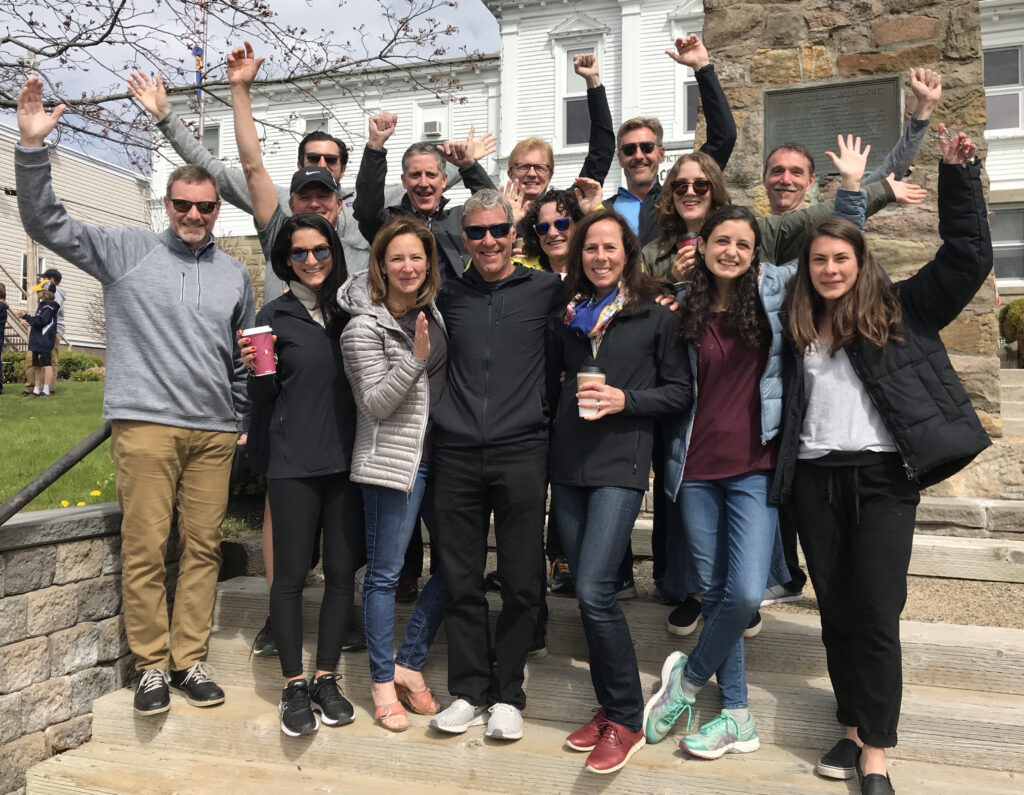
Although forced to miss a few events over the last twenty years, Lisa is drawing near to achieving her goal of running each of the seventeen different legs over time — something she looks forward to completing once the end of the Covid pandemic allows the race to start again, hopefully in 2022.
Well known about her passion for physical activity, a number of years ago one of her former Macleod Dixon law partners of the time, Tom Valentine — who Lisa describes as “larger than life” and who the Calgary Law Review describes as a road warrior, “a passionate cyclist and mountaineer” — approached her about a bicycle race sponsored by Tour de France. Called the Hot Chillee London-to-Paris Race, it is scheduled so that the competing cyclists finish by riding through Paris the day before the Tour de France cyclists. The race covers 522 kilometres with a total elevation change of 5,181 metres. Lisa says Tom always refers to her as “Bumble Bee”, which I take as reference to her constantly being in motion, that OCD in full view, buzzing from one task to another. As Lisa recalls, their bicycle race conversation went something like this.
Tom: Hey Bumble Bee, I need you to join me for the Hot Chillee London-to-Paris Race.
Lisa: I’m a runner, Tom, not a cyclist.
Tom: We need a female member for the team.
Lisa: But I don’t really cycle, let alone competitively.
Tom: You have time to prepare.
Lisa: How much time?
Tom: The race is in four months?
Lisa: You want me to prepare for a five hundred kilometre bike race in four months?
Tom: Yes.
You can all guess what happened, right? Right, four months later, the day before the Tour de France racers arrived, Lisa DeMarco rolled along the Champs-Élysées with the team and through the the Arc de Triomphe with all the other Hot Chillee London-to-Paris cyclists.
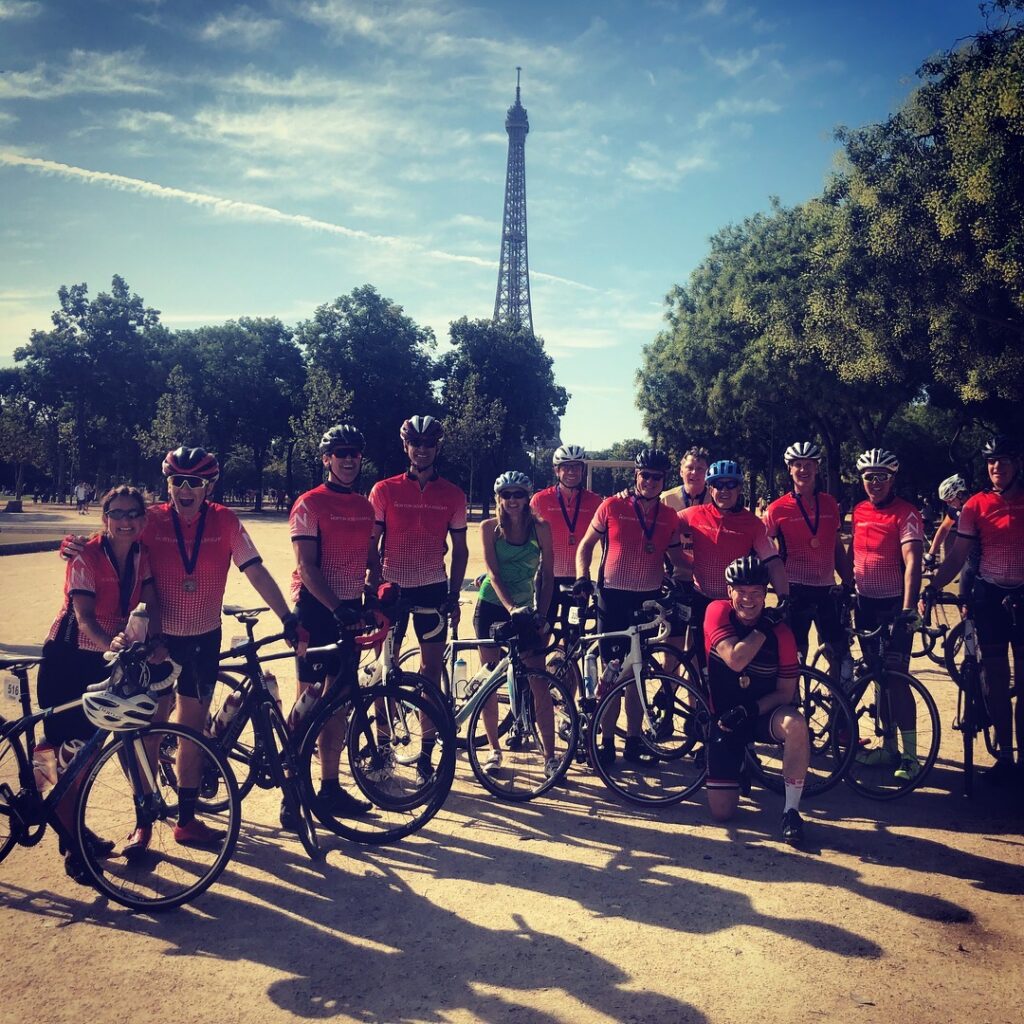
In describing her passion for physical activity, Lisa says, “It keeps the squirrel on the wheel.” That, I take it, is a bit of mixing the metaphor about the “bumble bee”: doing things to keep sane. She just can’t imagine staying sane without running or engaging in long canoe trips. Now, I don’t want to give readers the impression that everything in her life is nothing but work and exercise, although going back to the time of her work on Cap and Trade, it was professional life that did connect her to a revitalization of her personal life. A group of about fourteen climate experts from a wide variety of economic sectors were invited to join the Ontario Minister of Environment’s Climate Action Group. She was on a panel with John Coyne, General Counsel and a Sustainability Expert from Unilever. Lisa felt they had aligned views on a number of elements of climate policy and worked to cooperatively shape those elements into what became commonly known as the Ontario Cap and Trade Act and Regulations. In the Spring of 2018 they were each invited to speak on a larger banking panel at the biennial Globe conference. During their catch up, John indicated that his wife had lost her battle with cancer the previous year.
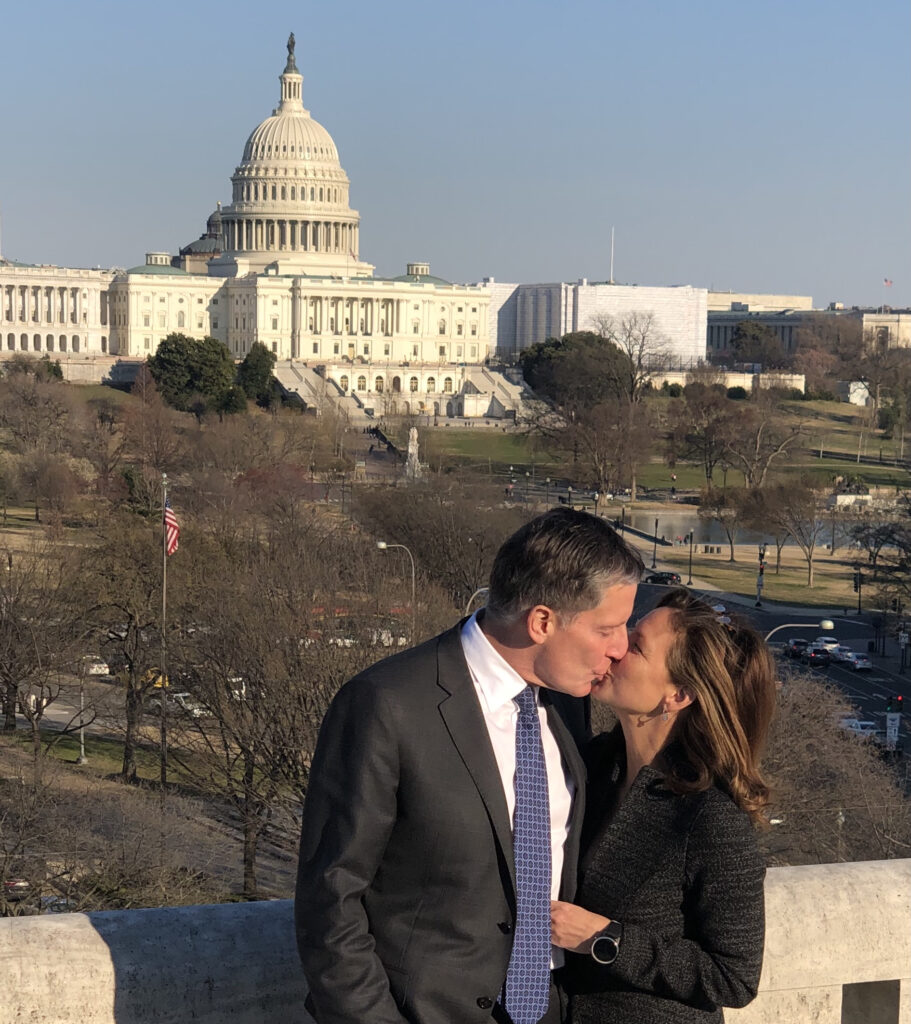
Lisa says, “I felt pretty terrible that I did not realize just how ill she was, didn’t send over any food, or otherwise pay tribute to her life. Work was hectic and we resolved to catch up later in the year. We were both speaking at the G7 in Halifax in September, 2019 but our work schedules conspired against us. Finally, on September 28, we arranged to meet up for a drink at the Hazelton across from my former office, immediately following John coming out of Board meetings. I brought along a work colleague, Francisca Quinn, who also knew John. About 15 minutes into drinks on the patio, she quietly informed me that ‘you may not know it, but you are on a date and I am exiting stage left’. While I didn’t believe her at the time…weeks later we were arranging a joint family vacation, and we sold our houses and bought a house together before we saw our first movie together. If there is such a thing as past lives, he has definitely been the love of my life in many.”
While retirement is not in sight, both her children and John’s children are off to various universities, and the two of them are now renovating a second home in Westport, a small village about 50 kilometres north of Kingston by the Upper Rideau Lake. Lisa is a lover of wine, though only a “two drink wonder on the weekends”, and Scheuermann Vineyard and Winery is nearby. The scientist in her is drawn to the botanical side, the plant science side, of growing grapes. Viticulture may be in Lisa’s near future — her personal energy boundless.

When Lisa and I finished one of our discussions, as I gathered details for this profile, she exhibited that personal warmth and caring that I first observed in a professional setting when I met her over a decade ago. Out of the blue she commented on my writing by saying, “you write women very well.” That made me feel good, of course, and after the call I reflected on it for a bit. The reflection brought forth an understanding that, really, my talent is far more about my good choices of subjects than my writing. You see, when you profile a woman as remarkable as Lisa DeMarco, all you have to do with your writing is to get out of your own way and let her life story do all the heavy lifting.
Next up, Canadian philosopher Mark Mercer. I met Mark back in the late 60s when I switched elementary schools in London, Ontario, but it was at Montcalm Secondary School where we became good pals. After high school, Mark’s life journey took him to universities, to study and teach, from Ontario to California, British Columbia, Manitoba, Alberta, Minnesota, and finally to Nova Scotia, where he has been a Professor of Philosophy for over twenty years at Saint Mary’s University in Halifax.
I hope you come back.
7 Comments
Add comment Cancel reply
This site uses Akismet to reduce spam. Learn how your comment data is processed.
Excellent article. Was always proud to be one of the nurturers (and occasional distracter) that makes up part of what Lisa is to the whole family, loved and respected.
Glad you enjoyed the profile.Thanks for the feedback.
I was always was very fond of Lisa growing up….so awesome to see all your success and happiness.
Such a great piece. We love the Bumblebee!
Wonderful to read about Lisa, who I met a long time go. Clearly, making a difference in world.
Keep making dents in the universe, Lisa.
I have known Lisa for many years. What a great story and tribute to what a wonderful, smart and amazing woman she is. She truly is an inspiration!
Eddy, you truly have met some interesting persons during your life on this planet. And you have definitely brought out the best of Lisa DeMarco to me! Great read, though long after I received. Thanks for keeping be in the loop!!